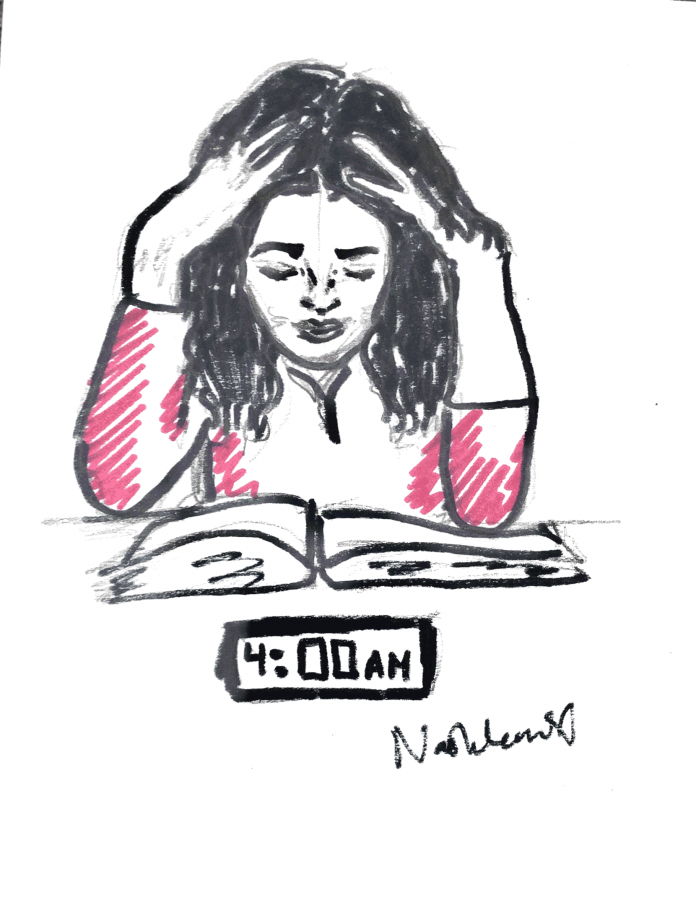The Issue of Procrastination Among High School Students
February 27, 2017
“Your article was due yesterday.”
It happens to everyone. We find ourselves putting off important work until the day before it is due, choosing instead to spend our time on Netflix binges, YouTube marathons, and other miscellaneous distractions. We ignore impending deadlines and submit assignments at the last minute. We procrastinate. Many would attribute this to the ease with which we get distracted, or to human nature, yet this trend seems to be on the rise. Recent studies show that over 85% of high school students admit to procrastinating on school assignments compared to less than than 30% in the late 1970s. Not only does this affect student performance on assessments, it also decreases effectiveness and compromises both mental and physical health. Yet, we still find ourselves scrambling to finish our English papers and rushing to submit our articles for the Spokesman a day after the due date.
Procrastination in high school students can and does jeopardize both student grades and health. As the work piles up and time dwindles away, students can lose important study time and rush through assignments, negatively affecting the overall quality of their performance. This accumulation of work weighs heavily on the shoulders of these busy students, increasing the pressure to compete and succeed in their classes. Not only does this pressure result in increased stress, research conducted by Psychology Today indicates that students who procrastinate catch more colds and flus and have increased gastrointestinal problems. They are also more likely to have insomnia, feelings of inadequacy, anxiety, and frustration. These effects are observable and predictable, yet we continue to procrastinate.
Procrastination is often caused by distraction, poor time management, laziness, pressure to succeed, or too many obligations. These influences can motivate students to prioritize different aspects of their life, to put off work, or even to ignore assignments altogether. In recent years, the growing access to unlimited distractions through high speed internet and social media programs such as Snapchat and Instagram have made it even easier to waste away hours while avoiding schoolwork.
There are a number of effective ways to stop procrastination. One proven way is learning time management skills in order to complete assignments more efficiently and effectively. Another possible solution is removing oneself from all distractions, especially electronic devices, in order to remain focused on work instead of falling down the black hole that is the internet. Other methods include setting goals to achieve within a certain time frame, breaking work down into manageable parts, and playing music to keep on track. What all of these techniques have in common is the idea of creating a space that encourages productivity instead of procrastination. Although there are potential pitfalls to these solutions, each encourages the student to take an active role in decreasing stress and anxiety in their own life. If we chose to discipline ourselves and find systems and methods that work for us, we may just be able to improve our grades and reduce stress in our lives by avoiding the dangers of procrastination.







Emilio M. • Nov 6, 2019 at 2:56 pm
I say that procrastination is natural because most people procrastination and the mind prefers to due sometimes that less stressful to themselves. Due to that procrastination can happen. Stress is not the only thing that can cause procrastination, some people are just lazy, others forget that what were they were gonna do, etc.